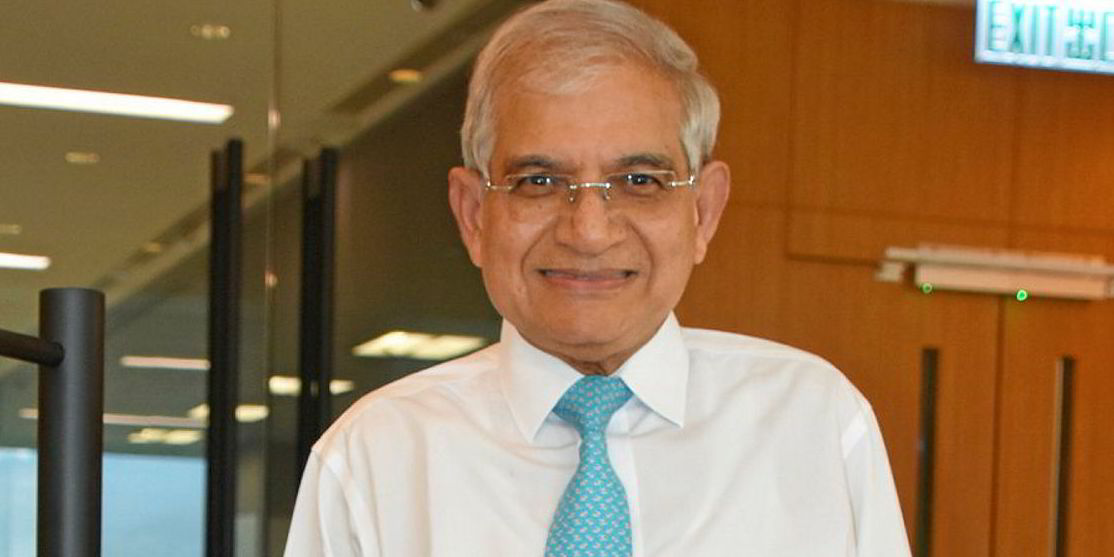Port states must give ships' crew freedom of movement and treat them as "key workers" in line with healthcare staff in the battle to combat the Covid-19 pandemic, according to Anglo-Eastern Univan chief executive Bjorn Hojgaard.
If governments worldwide fail to do so, Hojgaard added that food, medicine and medical supply chains will feel the effect.
He said crew are under increasing pressure and will soon be dangerously fatigued if lockdown and quarantine rules continue to keep them working long beyond their contracts.
Key to recovery
"We should not feel sorry for the seafarers," Hojgaard told TradeWinds. "This is their work. They have chosen this profession. But shipping is key to the world's ability to respond to this crisis. The only way the world's supply chain can remain open is if people can continue to get on and off ships.
"It's up to the governments. Crews have to be designated as 'key workers' and exempted from the most draconian restrictions that are being imposed."
His warning comes as an alliance of shipowners and managers this week echoed his call for governments to take action on the crew change crisis.
The group, with combined fleets of 7,000 vessels, wants governments to declare that seafarers are designated as key workers and to allow crew changes following detailed risk assessment plans.
It said crew changes can be safely made at the ports of Singapore, Houston, Rotterdam, Gibraltar, Jebel Ali, Fujairah, Hong Kong and Shanghai.
"At present, more than 100,000 seafarers are in effect marooned at sea because coronavirus shutdowns worldwide are preventing them from entering or transiting countries and/or finding flights on which to return home," the alliance said in a joint statement.
The alliance includes Norden, Grieg Star, Reederei Nord, Dynacom, V.Group, Wilhelmsen Ships Service, Pacific Carriers, Magsaysay, Augustea, Columbia Shipmanagement, Inchcape Shipping Services and Synergy Group.
Their call for action follows that of the IMO, which in late March asked governments to designate seafarers and marine personnel as key workers, and grant them "any necessary and appropriate exemptions from national travel or movement restrictions in order to facilitate their joining or leaving ships".
Flag states have been “pragmatic” about allowing crew certificate extensions under the extraordinary circumstances, but Hojgaard said extensions should not have to be indefinite.
And the number of seafarers being kept from disembarking — and the number of their off-duty colleagues prevented from working — is growing fast.
Anglo-Eastern accelerated its crew change schedule in February, as the extent of the crisis became known. Even so, about 4% of seafarers are currently working beyond their contracts.
The biggest challenge to a shipmanager's daily work now is the curtailment of crew changes
Anglo-Eastern's Bjorn Hojgaard
“By the beginning of May, the figure could be 15% and by 1 June if things haven’t opened up, 35%,” Hojgaard said.
Fleet Management, Anglo-Eastern's crosstown competitor, described a similar situation.
Financial burden
"As a result [of these measures], 15% of crew on board our ships are due for relief — a number that is likely to jump to 30% and beyond if the crisis deepens," Fleet Management managing director Kishore Rajvanshy told TradeWinds.
Seafarers’ contracts typically run for a specified number of months — three for senior officers, up to nine for ratings — plus or minus a month to accommodate the port call schedule of vessels.
At both companies, seafarers who go beyond the maximum extra month are being paid a bonus of 25% over their basic wage. This is a standard industry contract clause, but one that has not often been as widely used as now.
Managers are taking steps to promote crew health and psychological well-being, but they say action is needed onshore.
Hojgaard said governments have been "reactive rather than proactive" in responding to spikes in infection rates, with excessive and counterproductive restrictions on crew movements.
But he trusts they will eventually do "whatever is needed ... to keep the supply chain from breaking down".
One great improvement to crew welfare would be the development of a widely available and easily administered Covid-19 test.
Rule changes
"That would be one way the port states could ease the crew bottleneck, by testing and certifying crew members to allow them to move freely," he said.
Fleet Management and Anglo-Eastern are closely tracking regulatory developments in port states worldwide to find ways to move their crew and, like others, have been encouraged where restrictions have been eased, even temporarily.
"Even so, such sporadic good news does little good for effecting crew change, when there are no commercial flights operating between Singapore and India or [the] Philippines," Rajvanshy said.
"As such, while we continue to work with unions and industry bodies to get more jurisdictions on board for facilitating crew change, the reality is that our crew may not be able to get back home for a while now."
Hojgaard concluded: "The biggest challenge to a shipmanager's daily work now is the curtailment of crew changes."







